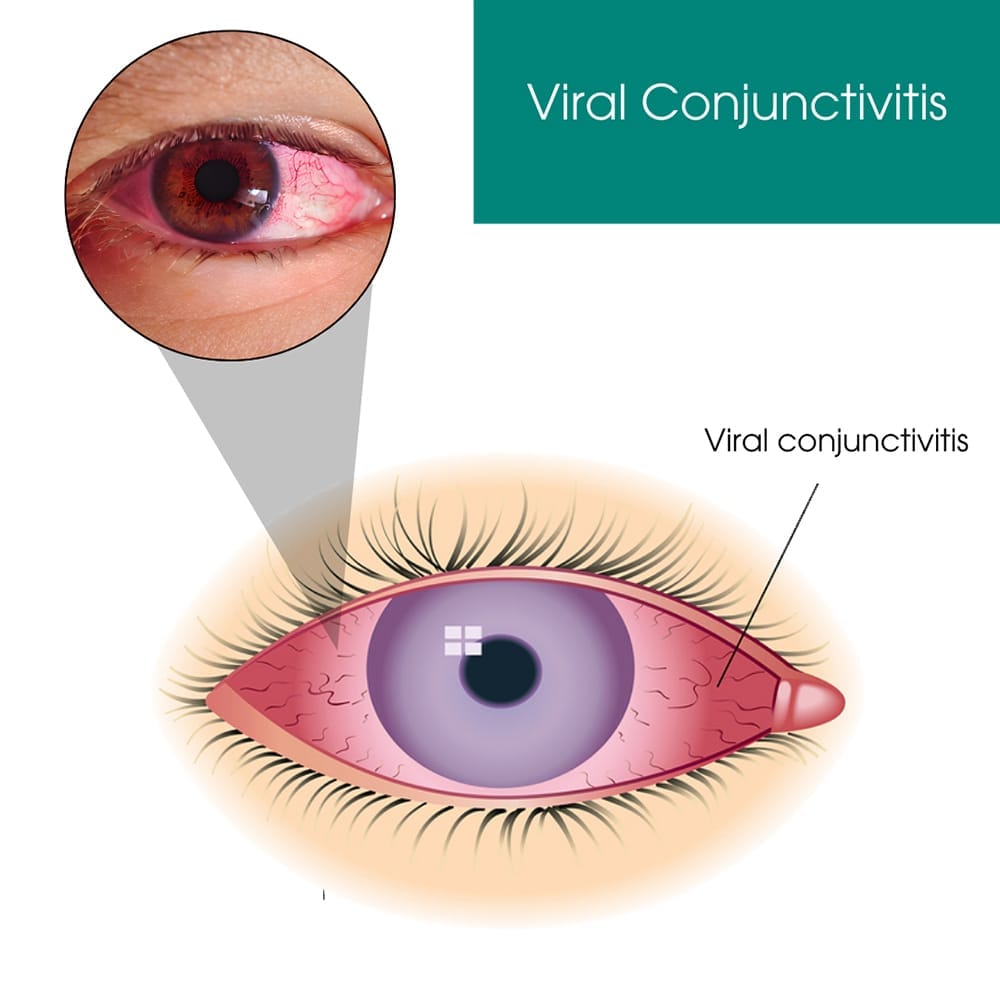 Eye allergies, also known as allergic conjunctivitis, occur when something irritates the eyes. Typically, the allergen triggers the production of histamines that work to eliminate it. This produces swelling, burning and itchiness. When eye allergies flare up, it’s difficult to maintain simple daily tasks. You often can’t stay focused and grow tired easily.
Eye allergies, also known as allergic conjunctivitis, occur when something irritates the eyes. Typically, the allergen triggers the production of histamines that work to eliminate it. This produces swelling, burning and itchiness. When eye allergies flare up, it’s difficult to maintain simple daily tasks. You often can’t stay focused and grow tired easily.
The conjunctiva is the lining of the eyelid and part of the eyeball. When this becomes inflamed, it’s called allergic conjunctivitis. Your eye allergies can occur seasonally or year-round, depending upon what irritants are triggering them.
An eye allergy specialist is best equipped to diagnose and treat this condition. Eye Physicians, led by the best optometrist, offers the latest allergy eye treatment in Downtown Manhattan, NYC. And their experienced team of optometrists gets you in and out of eye exam appointments in less than an hour.
Viral conjunctivitis is most commonly called pink eye. It’s a condition often discovered among children who easily spread the infection by touching each other and infected surfaces with dirty hands in busy day care and school environments.
Three primary differences exist between pink eye and eye allergies, including:
The two conditions are often confused because their symptoms are so similar. They both tend to produce red and watery eyes. Your eye allergy doctor diagnoses which one is causing your discomfort after a comprehensive eye examination. At New York-based Eye Physicians, pediatric eye doctors are experienced in dealing with both types of conjunctivitis in children.
Eye allergy specialists recognize that some people may be more likely than others to suffer from the discomfort of eye allergies.
You might be a candidate if you have certain characteristics, such as:
Whether your condition is inherited or impacted by outside forces, the reaction is often bothersome and painful. It can cause problems with simple daily tasks such as reading or using the computer. An eye allergy doctor helps you identify the triggers and prescribes the best eye allergy treatments.
Michael Cooney is a model physician, attentive, knowledgeable, empathetic, and crazy enough to climb Mount Everest (part way). What else could you wish in an eye doctor?
ReviewsProfessional and courteous staff with hardly any wait time. Dr Cooney is a special person with a big heart.
ReviewsGreat service. Everyone is very attentive. Dr.Cooney is very easy going and explains all questions with proper respect.
ReviewsPeople react to eye allergens in a variety of ways.
The symptoms can be mild or severe, depending on the individual and may include:
If you also have nasal allergies associated with common triggers, symptoms in the eyes may be accompanied by:
Eye allergies are caused by a variety of factors. One place this occurs is in your environment.
These allergens include:
You’re impacted by these allergens whether you’re outdoors or inside. In addition, some products are known to trigger an allergic reaction in your eyes.
Often the triggering culprit in these items is a chemical used as a preservative in items such as:
Following a thorough exam and medical history, your eye allergy specialist confirms the diagnosis and determines which eye allergy treatments are needed.
As part of your therapy, your eye allergy doctor recommends a variety of tips found helpful in preventing the onset of symptoms from eye allergies, such as:
Along with the eye allergy specialist, you often need to consult a general allergist as well. They perform skin tests and blood tests to find out which allergens are the cause of your symptoms. Armed with this information, you can more easily avoid the irritants which trigger the annoying reactions.
The best treatments for allergic conjunctivitis are determined after a thorough examination by a qualified eye allergy doctor.
These remedies might include:
You often use a combination of therapies when treating eye allergies, whether they’re prescription or over the counter. The medication is typically in the form of a drop, ointment or pill. After initial treatment, your symptoms may go away completely, or you may need more to manage the discomfort.
Read more: Pterygium Removal Procedure
Using eye drops or compresses typically provides only temporary relief, and some treatments cause side effects. If you live in NYC near Downtown Manhattan, contact the experienced eye allergy doctors at Eye Physicians. Their qualified team offers the latest eye allergy treatments to give you the relief, even in an eye emergency. A sensitive pediatric eye exam is available for your kids when they come to you with itchy, burning eyes or you see them rubbing their eyes constantly.
Eye Physicians
110 Lafayette St, Suite 503
New York, NY 10013
(212) 292-4814
Entrust the care of your precious eyesight to highly skilled and experienced eye care professionals. For top-notch ophthalmologists and optometrists in Downtown Manhattan, choose Eye Physicians. Eye Physicians ensures prompt care, precise diagnosis, and personalized treatment plans.
Schedule an Appointment